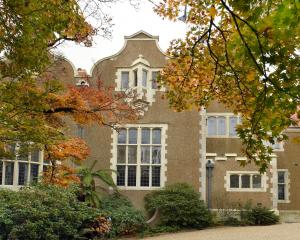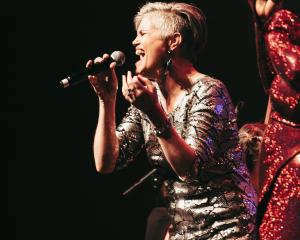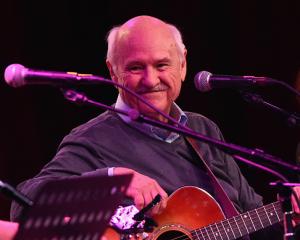Inspired, inspirational, the Buzzcocks wrote the book on pop-punk and have been reciting it for 40 years, writes Shane Gilchrist.
Buzzcocks founder Pete Shelley recalls the day he picked up a guitar for the first time: "It was January 4, 1970. I know because I kept a diary, well, at least for the first few days of each year. The entry proclaimed that was the day I decided to play guitar.
"I remember my brother got given a guitar, but he broke a string on the second day he had it and didn't pick it up again. That was the start of it. I would have been 14.''
Five years later, the Manchester musician formed the Buzzcocks.
And the rest is rock'n roll history.
Regarded as one of the original holy trinity of British punk - along with the Sex Pistols and the Clash - the Buzzcocks put the pop in punk music, early singles Ever Fallen In Love With Someone, What Do I Get and Orgasm Addict exercises in concise, frenetic songwriting.
In contrast to their peers, who dabbled in nihilism and/or political ruminations, the Buzzcocks wrote about love.
As various critics have noted, this was no less revolutionary than anything the Sex Pistols or the Clash were doing at the time.
Punk in its earliest days stemmed from an antipathy towards the conventions of pop and rock.
Thus, to marry the two seemed sacrilegious.
"I think some people thought punk was a good bandwagon to jump on, but those that did missed the point.
"I think we were the only other band part from the Sex Pistols who understood what was going on,'' Shelley reflected via phone from Estonia recently as he prepared for a Buzzcocks tour of New Zealand that includes a gig at Re:Fuel, Dunedin, on Thursday, March 17.
"The Sex Pistols didn't want every other band to be like them; they wanted people to express themselves. And being up north, in Manchester, away from all that media glare, allowed the Buzzcocks to do that.
"We were attempting a non-commercial form of music. It was everything a professional musician wouldn't touch with a barge-pole. There was no market for it, really.''
Yet, clearly, there has been a market for the Buzzcocks' music.
Since the group's formation in Manchester in 1975, there have been nine studio albums, including three in the UK top 40, seven singles in the UK top 40, covers by other bands, and the inclusion of songs on film soundtracks and advertisements; in addition, its 1979 compilation, Singles Going Steady, is regarded as a classic of the time.
The band's influence has seeped far and wide, the songs of Shelley and co-writer Steve Diggle inspiring Nirvana's Kurt Cobain, as well as Husker Du, The Smiths, Radiohead and Pulp, to name a few.
Shortly after forming, Shelley (whose real name is Peter McNeish) and fellow founding member Howard Devoto booked Manchester's Lesser Free Trade Hall, persuading the Sex Pistols to play there.
However, the Buzzcocks had to pull out of their own gig when the bassist and drummer left the group before the concert.
A few months later, with a new rhythm section, the band opened for a second Sex Pistols show at the Lesser Free Trade Hall in July 1976.
By the end of the year, the Buzzcocks had helped establish Manchester as the second-biggest punk rock city in England, just behind London.
There have been plenty of changes over the years: Devoto left the group in 1977 to form Magazine; Steve Diggle switched from bass to guitar; Garth Smith joined; and Shelley became chief vocalist and songwriter. In mid-1980, the group split due to a lack of international success; however, it re-formed in 1989 and has continued since (albeit in rearranged form, its latest line-up comprising Shelley, Diggle, bassist Chris Remington and drummer Danny Farrant).
In preparing for the band's 40th anniversary tour (based on the timing of its first gig), Shelley says the Buzzcocks will be packing their set with their most popular songs.
"To be honest, it'll be a few more years before we embark on another world tour.
"It's like having a party every night,'' the 62-year-old says, touching on an important point, the energy required to perform the material for which the Buzzcocks are best known and loved: short, sharp and fast songs bristling with hooks.
"It would lose all sense of meaning if we just went through the motions,'' he muses, adding: "I hate playing slow songs. They never seem to end. I've always been into brevity.''
Blame the 1960s, Shelley says.
He recalls living near a second-hand record store, where he would regularly buy Beatles albums.
"I was a big fan. And once I'd learned a few chords I taught myself to play along to those Beatles songs.
"It was a time, of course, of pop music: The Beatles, The Kinks, The Rolling Stones, The Who ... then there was all that Motown catalogue, all sorts of great music.
"I think that's where my love of short pop songs comes from.''
The gig
• The Buzzcocks perform at Re:Fuel, Dunedin, on Thursday, March 17.














